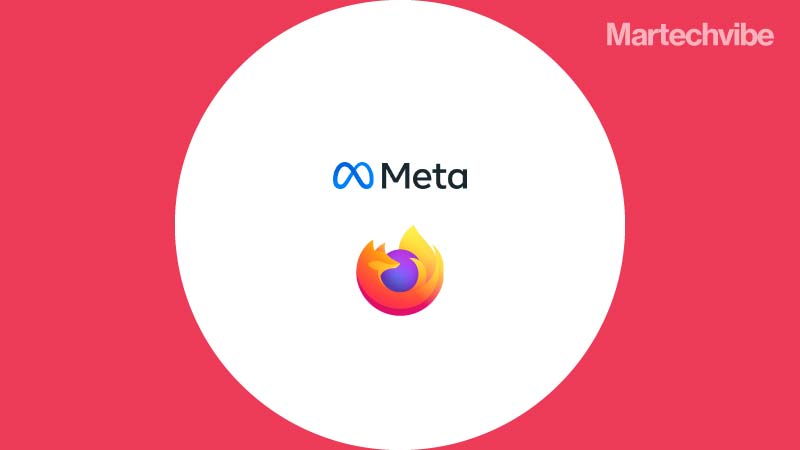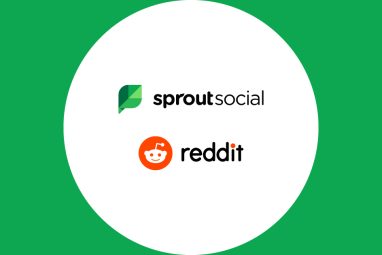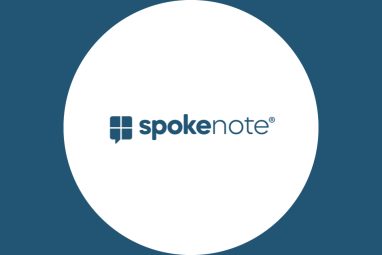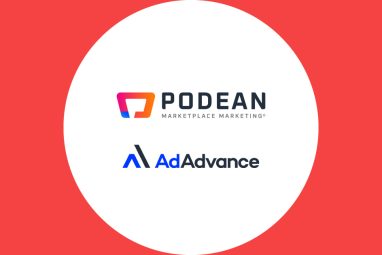Mozilla, Meta Partner For Conversion Measurement Solution
Mozilla and Meta have collaborated on a conversion measurement solution that would allow advertisers to track campaign performance across devices and browsers without collecting data on individual users. Called Interoperable Private Attribution (IPA), it has been designed as a solution that would work within the boundaries of browser-based and mobile privacy restrictions. The phasing out […]
Topics
What to Read Next

Mozilla and Meta have collaborated on a conversion measurement solution that would allow advertisers to track campaign performance across devices and browsers without collecting data on individual users.
Called Interoperable Private Attribution (IPA), it has been designed as a solution that would work within the boundaries of browser-based and mobile privacy restrictions.
The phasing out of third-party cookies on browsers Chrome, Safari and Mozilla’s Firefox, and Apple’s app tracking shift, have undermined existing attribution practices, which “have terrible privacy properties”, Mozilla engineer Martin Thompson said in a blog post introducing the concept.
Attribution is the practice of evaluating the success of a campaign across various touchpoints, so advertisers and publishers can understand which channels and messages had the greatest impact. While this measurement technique is “crucial to advertising”, Thompson said, it hasn’t been addressed by most privacy-compliant ad solutions so far.
In Campaign Asia-Pacific’s 2022 adtech predictions feature last month, Vasuta Agarwal, SVP and managing director APAC of InMobi, pointed out that identity resolution solutions have been limited to targeting alone and “the need to effectively measure and attribute just isn’t getting its due attention”. She described this as a “bad miss for our industry”.
IPA uses a match-key concept, in which an encrypted match key is created when a user logs into a browser on one device, which allows the system to connect the behaviour of that user as they bounce around different browsers and devices, provided they use the same login information and the solution is adopted by all browsers.
In theory, it could determine whether a user saw an ad on one device that influenced a purchase on another. It has two key privacy-preserving features, according to Thompson’s blog. It uses Multi-Party Computation (MPC) to avoid allowing any single entity to learn about user behaviour, and it is an aggregated system, which means that it produces results that cannot be linked to individual users.
Together these features mean that IPA cannot be used to track or profile users, Mozilla says. The proposal has been co-developed over several months by engineers from Mozilla and Meta. They have proposed IPA, to the Private Advertising Technology Community Group (PATCG), a group in the W3C specifically formed to incubate advertising solutions that protect the privacy of web users.
There are more than 200 participants in PATCG, including strong representation from major tech companies, as well as adtech, publishers and ad associations. The group held its first meeting last week to discuss IPA, among other solutions. The architects of IPA are inviting feedback and discussion on the proposal in recognition that “IPA is promising, but it is still a work in progress”
Industry observers have been quick to draw attention to the unexpected partnership between Mozilla and Meta, when the former has been a long-standing critic of the latter’s approach to privacy and governance. As recently as August last year, Mozilla head of trust Marshall Erwin penned a blog post calling out Facebook as a “safe haven for disinformation and extremism—wreaking havoc on people, our elections and society” and said it was an “unresponsive platform” when it comes to addressing its pitfalls.
The Mozilla Corporation is a fully-owned subsidiary of Mozilla Foundation, a non-profit which governs the open-source development of internet products, including the Mozilla Firefox web browser. It is very different to for-profit Meta, which develops its products closed-source and keeps its data in walled gardens.









































































































